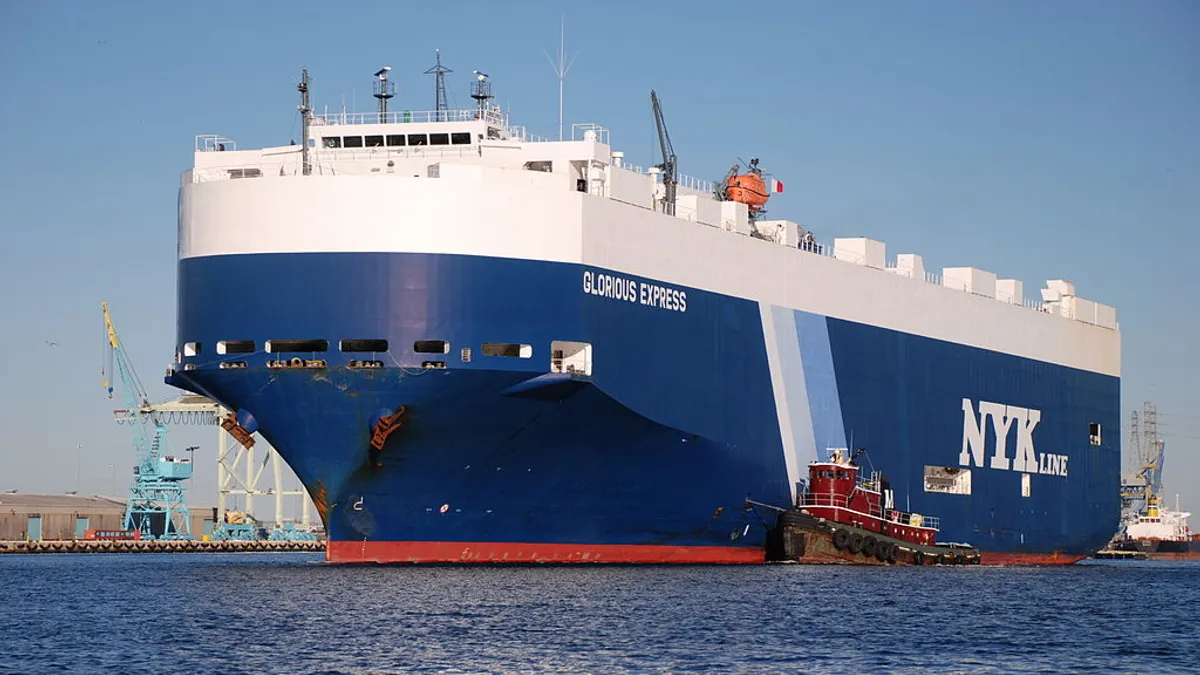Dive Brief:
- The Federal Maritime Commission (FMC) on Wednesday rejected the "Tripartite Agreement" by Kawasaki Kisen Kaisha (K Line), Nippon Yusen Kaisha (NYK) and Mitsui O.S.K. Lines (MOL) to jointly conduct business on the grounds the regulator did not have the authority to approve the proposal.
- The Commission found the parties were creating a "merged, new business entity," which the FMC cannot review. JOC.com reports the U.S. Justice Department (DOJ) would be responsible for approving the deal.
- Prior to the ruling, the agreement would have entered into effect May 8, 2017, allowing the companies to establish the joint-venture company by July 1, 2017, and begin operations April 1, 2018. The FMC ruling does not affect an eventual DOJ decision on the matter.
Dive Insight:
The FMC's vote to reject the Japanese lines' agreement, while not officially dooming, places the merger's fate on the hands of an agency clearly skeptical of the ocean transport industry's recent consolidation.
In March, the DOJ subpoenaed various major ocean carriers, albeit without official allegations. Since then, a hearing and various reports have suggested the agency is investigating price collusion on service providers, and includes probing into the major new alliances.
Futher evidence of the agency's stance on maritime carriers banding together can be found in a September letter by the agency's Antitrust Division to the FMC. In the letter, Acting Asisstant Attorney General Renata Hesse urges the FMC to limit the Ocean Alliance's jurisdiction, or enjoin it.
"The Agreement is a concerning step towards industry consolidation," Hesse writes, arguing the competitive effects of an alliance are far too similar to that of a merger. "As drafted, many of the Agreement's provisions risk immunizing behavior outside the scope of the Shipping Act and may create obstacles to the enforcement of the antitrust laws if the lines between permissible and impermissible conduct are not clear."
In fact, Hesse made the DOJ position very clear as background to the letter, writing: "The Department has long taken the position that the general antitrust exemption for international ocean shipping carrier agreements is no longer justified."
Although the FMC approved both the Ocean Alliance and subsequently THE Alliance, the rejection of jurisdiction over the Japanese lines' merger may be an attempt to clarify that line. However, if Hesse's words are taken as DOJ positions, the path to approval does not look easy for the Asian carriers.
Yet, not all hope is lost: The three Asian carriers would together control a far smaller market share (7.2%) than any alliance and five other allied-carriers, so they could still receive antitrust approval despite previous DOJ concerns.














